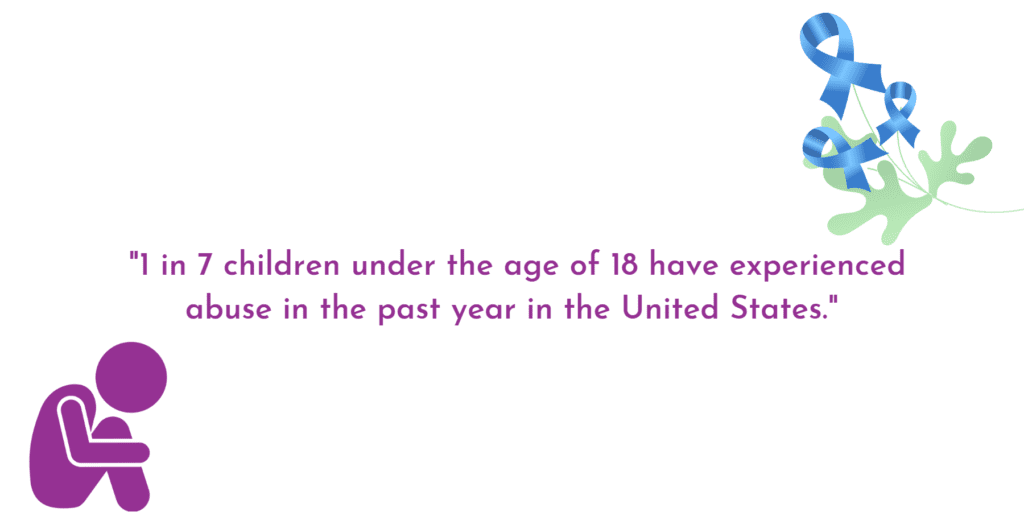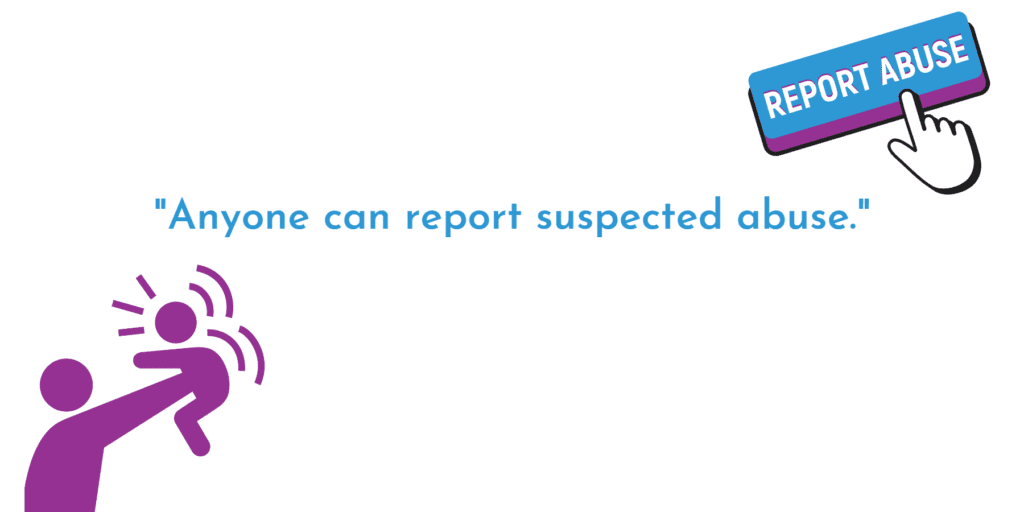April is National Child Abuse Prevention Month. The month is used to refocus efforts on building relationships between families and public health to sustain prevention. To kick off National Child Abuse Prevention Month let’s review some myths about child abuse and review how to report concerns.
Myth 1: Child abuse is only physical abuse.
Fact: Child abuse is a term used to describe a variety of behaviors that can cause harm. The legal definition includes:
- Physical abuse specifically kicking, biting, throwing, burning, stabbing or cutting a child in a manner that endangers the child; or shaking or forcefully striking an infant less than 1 year of age
- Mental abuse such as name-calling, shaming, rejecting, withholding love, or threatening
- Sexual abuse or exploitation or sex trafficking
- Neglect or failure to meet basic needs such as food, clothing, housing, education, or access to medical care
- Restraining or confining an infant or child
- Failure to act if you know abuse is occurring
- Causing an infant or child to be present at the location where an operation of a methamphetamine laboratory is occurring
- Leaving a child unsupervised with a registered sex offender
Myth 2: Child abuse isn’t very common.
Fact: According to the Centers for Disease Control and Prevention, it is estimated that 1 in 7 children under the age of 18 have experienced abuse in the past year in the United States. Others such as the U.S. Department of Justice estimate 1 out of 5 children have experienced abuse. Risks for the child being abused increase if they are developmentally or physically delayed. A person is more likely to become abusive if there is alcohol, drugs, or substance use in the home, there is a history of abuse, physical or mental illness, financial stress, poor parental support, or family crisis.

Myth 3: Abuse mostly occurs with strangers.
Fact: The majority of abusers are not strangers, it’s the people we know. Parents, parent partners or spouses, or family friends are the highest perpetrators of child abuse, only 7% of abusers are strangers.
Myth 4: It’s easy to spot signs of abuse.
Fact: Some signs of physical abuse such as unexplained bruises or injuries that don’t match with the explanation may be easier to see. Other signs such as withdrawing from friends, changes in behavior such as anger or aggression may be more difficult to spot.
Often symptoms are specific to the type of abuse. For instance, signs of sexual abuse include sexual behavior that is not age appropriate, inappropriate sexual behavior with other children, or sexually transmitted infections or pregnancy.
Emotional abuse can lead to depression, anxiety, poor school performance, loss of developmental skills such as potty training. Neglect may appear as being underweight, stealing food, poorly clothed, or poor attention to medical needs.
Myth 5: The cycle of abuse can’t be broken.
Fact: Breaking the cycle is possible! Acknowledge your past and risk factors, get help, and plan for success. While much easier said that done, here are some suggestions on how to get started.
Talk to your provider or therapist about your history or risk factors
Take a parenting class to learn about childhood development and gain new skills
Build a trusted social network of support
Take a deep breath or go for a walk when you feel overwhelmed before disciplining a child
Take care of yourself by getting enough sleep, exercising, and eating right
Report suspected abuse
What to do if you suspect your child or another child is being abused?
Report it! Reporting suspected abuse kicks off the process of an investigation to get more information. The investigation will determine if abuse is occurring.
Most importantly, anyone can report suspected abuse. Some people are mandatory reporters of abuse. That means they have training to recognize signs and symptoms of abuse and are obligated by law to report the concern. Mandatory reporters include teachers and childcare workers, healthcare workers including nurses and doctors, clergy members, librarians, attorneys, and foster parents.
Call 1-800-932-0313 in Pennsylvania or the National Child Abuse hotline at 1-800-4-A-Child (422-4453) to report suspected abuse.









